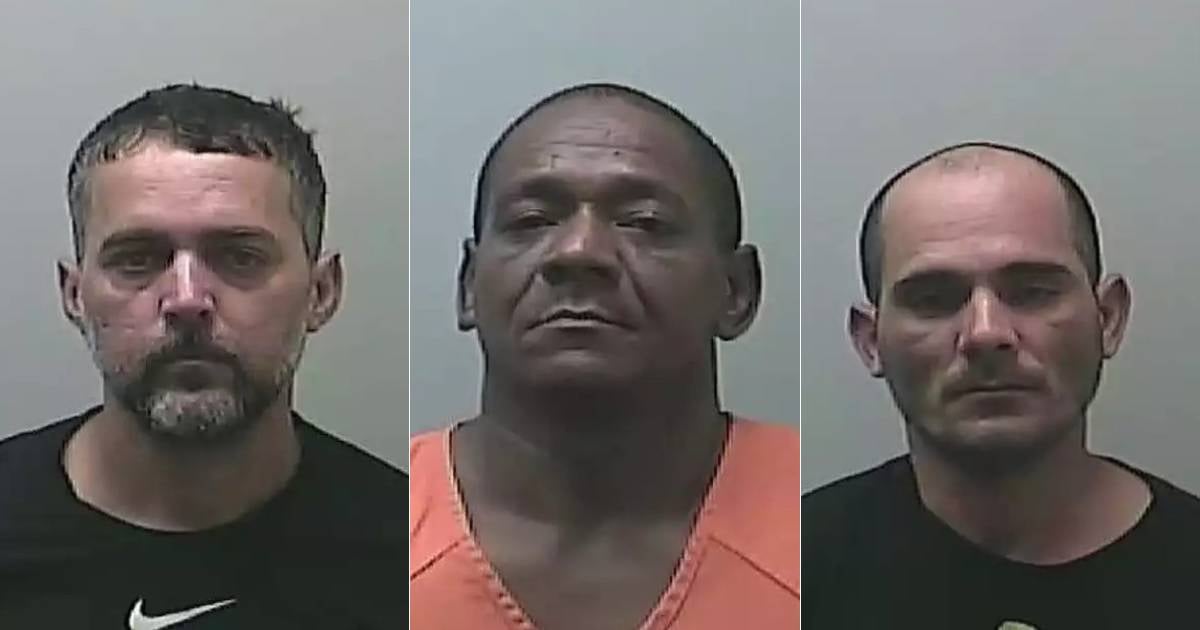In a tale of crime intertwined with migration and economic distress, three Cuban nationals were sentenced this week in the United States for attempting to steal from an illegal marijuana operation in Michigan. Yoany Álvarez Antuna, aged 42, Addier Mejía Torres, 50, and Andy Gómez Niebla, 39, admitted guilt to charges of conspiracy to interfere with commerce by robbery after their July 2023 attempt to raid a barn filled with marijuana plants and processed cannabis in Coleman, Michigan.
On June 5, the trio received federal prison sentences ranging from 40 to 46 months under the Hobbs Act, as reported by the local Midland Daily News. With over two decades in the U.S., Álvarez Antuna has worked in construction and agriculture. His attorney shared with the court that he joined the plot hoping to fund his eldest daughter’s nursing education.
Mejía Torres, who arrived in 2023 without legal documentation after fleeing Cuba's regime, also worked as a farm laborer and had no prior criminal record. His defense argued that his sole intention was to send money back to his wife and two young children in Cuba. Although armed, the evidence showed that gunfire during the botched robbery came solely from the property owner, who injured Mejía-Torres.
Desperation Amidst Migration Challenges
The incident escalated to a federal level given the operation's scale: surveillance footage captured several masked men equipped with weapons, tools, and camouflage breaking into the premises at 2:30 a.m. on July 16, 2023. Soon after, six suspects were apprehended, with three still awaiting sentencing or trial.
Authorities seized a total of 227 marijuana plants and 62 kilograms of cannabis. It remains unclear if the growers will face charges for operating without a license.
Federal Judge Thomas Ludington handed down the sentences, but the saga for those involved is far from over. Mejía Torres and another accused face deportation orders, yet strained U.S.-Cuba relations might stall these processes, leaving them in a precarious migratory state.
In their final statements, the three Cubans expressed regret and vowed to use their time in custody to gain skills and learn English. They urged the court to consider not only the crime but the poverty, exile, and desperation that drove them to it.
Other Involved Parties and Their Legal Battles
Other individuals sentenced, identified as Roberto Padrón Álvarez, Yuan Biart González, and Jorge García Santiago, primarily hail from Matanzas province and faced charges for armed home robbery and conspiracy, as illustrated by photos posted on the Midland Police Department's Facebook in July 2023.
According to the Midland Daily News, earlier this year, Padrón Álvarez, who has lived in the U.S. since age 12 and has three children in Florida, also pleaded guilty to conspiracy to interfere with commerce by robbery. His attorney requested a 57-month sentence, citing remorse and accountability.
Yuan Biart González admitted to the same charge and possession of a firearm during a drug trafficking crime. Both await sentencing, while García Santiago, aged 40, continues to face charges.
Understanding the Legal Implications of the Case
What is the Hobbs Act?
The Hobbs Act is a federal law that prohibits robbery and extortion affecting interstate or foreign commerce. It is often used in cases involving organized crime or large-scale operations.
Why were the Cubans charged with conspiracy to interfere with commerce?
They were charged with conspiracy to interfere with commerce because their attempted robbery involved plans to disrupt the marijuana supply chain, which falls under the jurisdiction of the Hobbs Act.
What could delay the deportation of the convicted Cubans?
The deportation could be delayed due to the tense diplomatic relations between the United States and Cuba, which complicate the deportation process.
